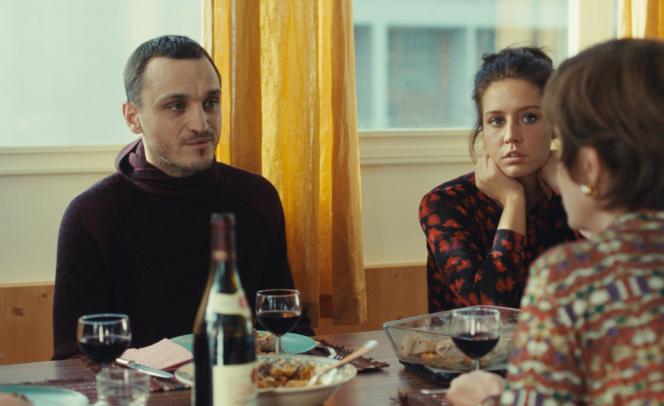THE OPINION OF THE “WORLD” – TO SEE
In love, one plus one rarely equals two, but often three. The history of cinema has a few masterpieces about the couple pulverized by the irruption of a third party, such as Jules and Jim (1962), by Francois Truffaut, The Mom and the Whore (1973), by Jean Eustache, or even The Valseuses (1974), by Bertrand Blier, with his story (rather rare) of a libertarian and happy trio.
In Crossings, a French film haunted by this cinephilia, produced by Saïd Ben Saïd and Michel Merkt, the American Ira Sachs, born in 1965, offers a contemporary version of the trouple, where sex is raw and love soon cooked: in Paris, Tomas (Franz Rogowski), a director who is unkind to his actors, lives an intense story with the seductive Martin (Ben Whishaw). The two thirty-year-olds have plans, a house in the country, but the idyll that Tomas suddenly forms with Agathe (Adèle Exarchopoulos) comes to hit the trajectory of this couple which seemed drawn.
In the course of a dialogue, we sense a dawning desire in Tomas and Martin for a family – for same-sex parenthood, as we would say today – and the most inventive idea of the screenplay is to furtively suggest the hypothesis of a child who would be conceived by Tomas and Agathe, and raised by the trio. By cheating on Martin, Tomas may be trying to invent a sort of three-parent family, with a woman he sincerely loves, but whom he makes just as unhappy as his companion. Agathe does not want to share the same man, the same bed – unlike Veronika (Françoise Lebrun), the lover of The Mom and the Whore who slips into the sheets of the infernal couple played by Jean-Pierre Léaud and Bernadette Lafont.
pure desire
Sexual identity, the desire to live despite the lurking death (AIDS, old age) irrigate the “indie” chronicles of Ira Sachs, a regular at the Sundance Festival – he is also a director of Frankie (2019), with Isabelle Huppert in the role of a sick woman, deciding to live her last moments happily. From his first feature film, The Delta (1996), the director followed the nocturnal wanderings of a boy dividing his life between his girlfriend and men picked up on the highway. Over the decades, his work has taken an almost documentary look at the gay couple in the United States: here they are exposed to the ravages of drugs at the end of the 1990s, in Manhattan, in keep the lights on (2012), while Love is Strange (2014) explores the “hangover” of gay marriage, mistreated in the prevailing conservatism.
You have 37.11% of this article left to read. The following is for subscribers only.
